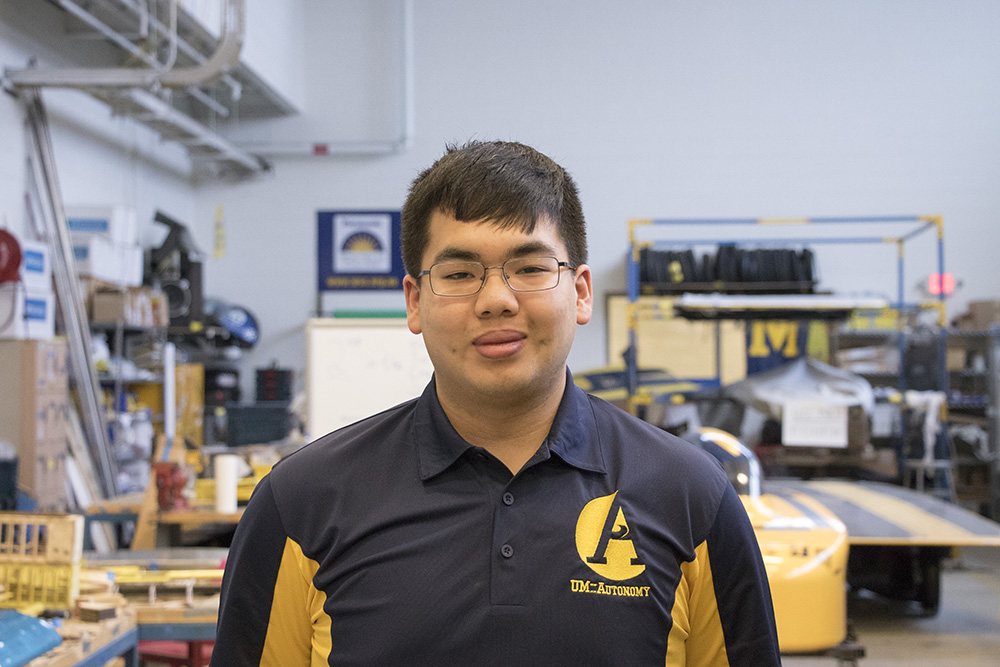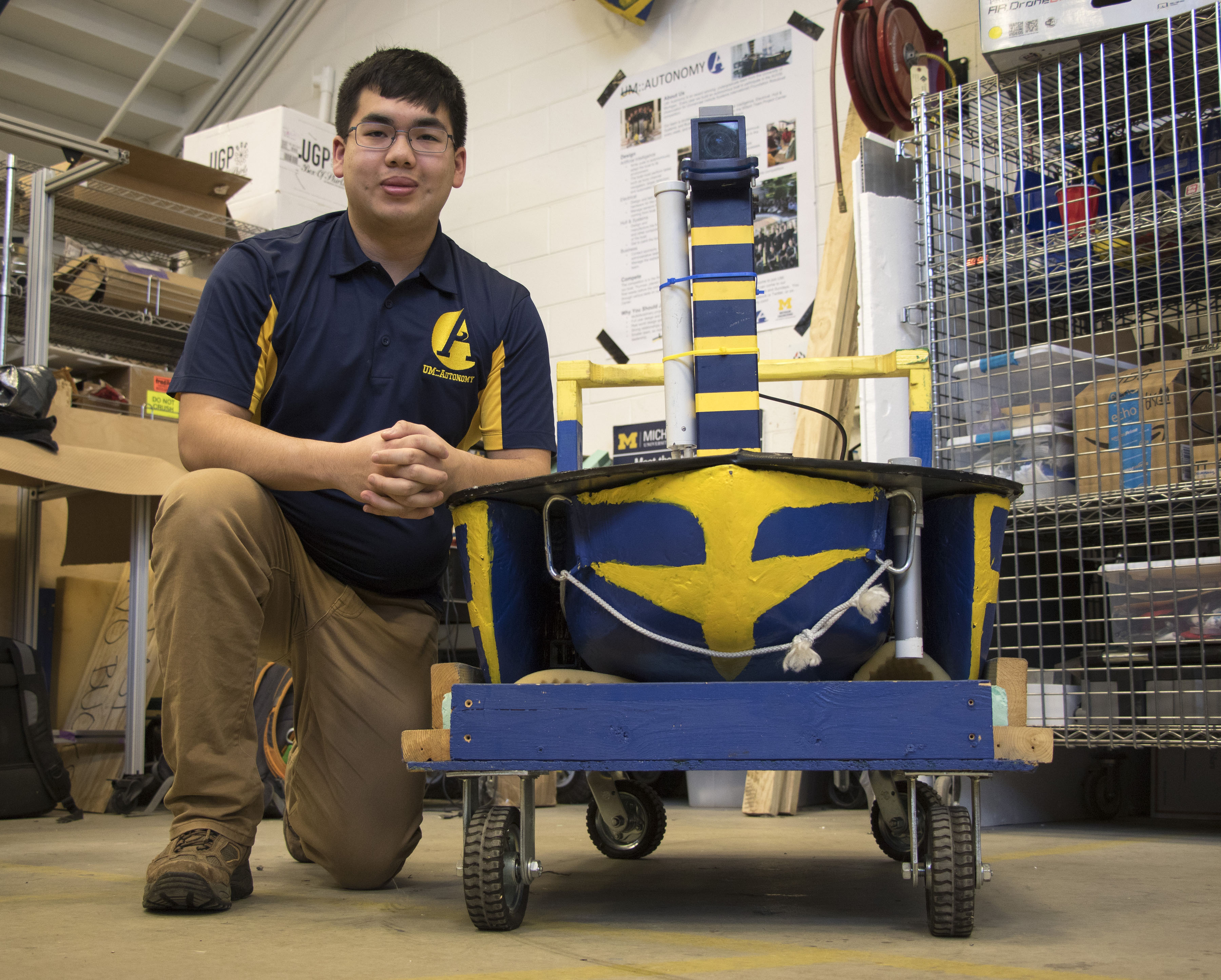Battling drone ships with Anthony Uytingco
Student leads team that programs the future of boats.

 Enlarge
Enlarge
Out on the water, a drone flies up. It beelines to the shore, scans available piers, and sends a signal to its launch boat on where to dock. With no human interaction, the boat finds its slip, and the drone lands.
This is the newest challenge in the Association for Unmanned Vehicle Systems International’s (AUVSI) RoboBoat Competition. Other challenges for the five-foot autonomous boats include speeding around buoys, navigating a field of obstacles, staying in a precise formation, and docking based on an underwater pinger.
Anthony Uytingco, a junior in Electrical Engineering, leads UM::Autonomy, Michigan’s RoboBoat team.
“The biggest challenges are making sure the team works together, from hulls to electrical to artificial intelligence,” Uytingco says. “And, because we’re in Michigan, we can’t test in the winter. It gives our southern competitors a little advantage.”
Despite ice-covered lakes hindering testing, UM::Autonomy has a handful of top-five finishes. “Last year, we had some electrical failures and finished second to last,” says Uytingco. The team aims to return to the finals this year in the late-June International RoboBoat Competition, held in Daytona, Florida.
Before deciding to work on autonomous boats, Uytingco explored several of the student teams at the Wilson Center. He chose UM::Autonomy because he felt there was a lot of room to grow, and has since been the Electrical Team Lead, and now President.
For those interested in joining a similar team, Uytingco advises to be open to everything.

 Enlarge
Enlarge
“I missed out on some things because I was afraid that I was unqualified,” he says. “Just show up, even if you don’t plan on being involved, show up and it might lead to something more.”
Uytingco has been building his expertise in electrical engineering, which he chose to pursue after taking ENGR 110: Design Your Engineering Experience.
“Most other engineering programs felt niche,” he says. “But electrical engineering seemed broad, and I could make it what I wanted it to be – whatever that ended up being.”
The collaborative spirit of U-M helps Uytingco both in his degree and UM::Autonomy.
“Some schools are really competitive, and people just don’t want to work together,” he explains. “That’s not how it is here, though, from the administration down to the students.”
One example is Michigan Applied Robotics Group (MARG), which is a collaboration between several robotics groups at U-M, including UM::Autonomy. MARG’s goal is to help robotics teams handle bureaucratic affairs, expand robotics knowledge, and strengthen connections to industry. Recent MARG events include a tech talk on neural networks and upcoming visit in March from Raytheon.
Uytingco expects to graduate in 2019, with a bachelor’s in Electrical Engineering and a minor in Physics.
 MENU
MENU 
